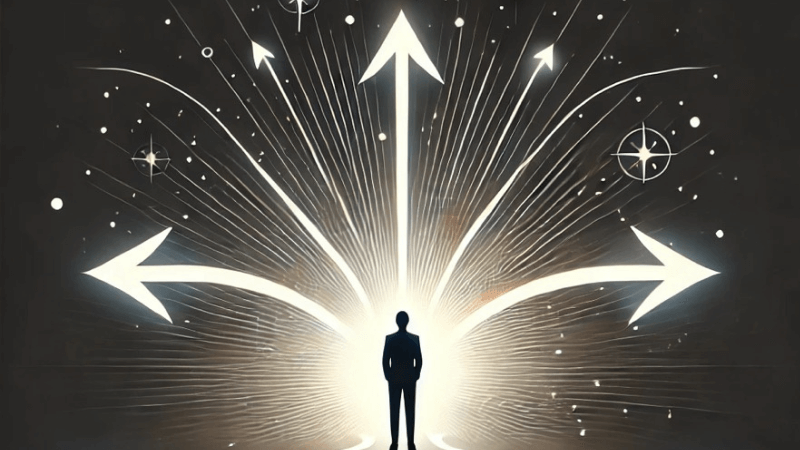
Leadership stories often emerge from unexpected places. Over the past few weeks, as part of my research, I’ve been seeking stories from coaching clients to illuminate the journey from knowledge to wisdom. I didn’t know when or where I’d find one, but a conversation with a friend unfolded into something much more profound. What began as a casual exchange reflected how deeply we engage with knowledge and allow it to transform us.
This story exemplifies how listening with purpose and openness can reveal insights that might otherwise remain hidden.
A Story of Resonance
During a recent call with a friend, he asked if I had read Every Good Endeavor by Timothy Keller. I told him no, expecting the conversation to move on. Instead, he shared a story about the book and his relationship with it.
As he spoke, it became clear that Every Good Endeavor was more than a book to him. It wasn’t the book’s content that made it transformative. Rather, it was how those ideas aligned with his core—his identity and beliefs. He explained how Keller’s reflections on faith, work, and purpose connected to his values, reshaping his thoughts about his contributions to the world.
At first, I didn’t fully grasp the depth of his connection. I hadn’t explored the book or its themes, nor had I known how deeply it resonated with him. But I realized something profound as I listened: what he described wasn’t merely learning. It was a deliberate act of aligning knowledge with his identity and beliefs. He had engaged with this knowledge in a way that fueled his personal growth and illuminated his path forward.
The Power of Curation
This story highlights an important distinction: the difference between acquiring and curating knowledge. Acquiring knowledge involves gathering raw information—facts and ideas from books, experiences, or conversations. Curating knowledge is an intentional act of engaging with, integrating, and making sense of what we’ve learned. It’s about selecting, shaping, and organizing insights through the frame of our values and purpose.
Think of a museum curator. It’s not enough for them to catalog every piece of an artist’s work. Their job is to select and arrange a collection that tells a coherent story, representing the artist’s evolution and message. In the same way, curating knowledge involves deciding what matters, what aligns, and what serves our growth. It’s a practice of depth, not breadth.
My friend’s relationship with Every Good Endeavor exemplifies this. He didn’t simply read the book; he allowed its ideas to resonate, to align with his core beliefs, and to shape his perspective. This act of curation transformed raw knowledge into wisdom.
The Path to Growth
For some, intentional engagement with knowledge creates clarity and resonance. For others, it becomes the spark for transformation. Yet, this process requires more than collecting familiar or comfortable ideas. Growth demands deliberate exploration and the courage to confront what challenges us.
Instead of overused phrases like “leaving your comfort zone,” consider expanding your edges. Growth comes from engaging with knowledge that stretches your current understanding, pushing against preconceived notions and inviting you into unfamiliar territory. It’s not about consuming more content—it’s about seeking diverse perspectives and questioning your assumptions. Transformation begins by reflecting on how new ideas align with or challenge your beliefs.
My friend had already taken this step. Every Good Endeavor resonated with him deeply. It expanded his thinking and challenged him to reevaluate how he approached work, relationships, and purpose. He bridged the gap between knowledge and wisdom through thoughtful discussions and self-reflection. He aligned ideas with his values and used them to deepen his understanding of himself and his role in the world.
Opening Ourselves to New Possibilities
To curate knowledge, we must embrace ideas that disrupt our thinking. This doesn’t mean consuming more information without thought; it means seeking what challenges us.
Here are some practical ways to engage in this process:
- Diversify: Seek books, podcasts, and experiences that challenge your views. Explore perspectives from different cultures, industries, and disciplines.
- Engage: Have conversations with those who see the world differently. Ask questions that help you understand their perspective.
- Reflect: After encountering new ideas, journal or meditate on how they align with or challenge your identity and beliefs. What resonates? What feels uncomfortable? Why?
- Experiment: Put new knowledge into practice. Test it in real-world scenarios and observe how it shifts your perspective.
- Refine: Revisit past ideas that have shaped you. How have they evolved? What still holds true? What no longer serves you?
Curating knowledge can feel uncomfortable, but growth often emerges in this discomfort. This process builds the bridge from raw learning to transformative wisdom. It engages our full faculties: the mind for reasoning, the heart for values, the will for action, and intuition for deeper understanding. Guided by discernment, these faculties work together to refine and integrate what we take in.
Be Ready for Wisdom to Find You
Funny enough, when I shared this reflection with my friend, he said, “Wow—you got all that from that?! You’re a great listener, and after reading your note here, I think it does a great job of summarizing what’s going on under the surface/subconsciously.”
The lesson for me is this: when you desire new insights, new ideas, or to test assumptions, be ready to hear them, often in unexpected places. By listening with intention and openness, we create space for transformative insights to emerge.
The Wisdom Key
Acquiring knowledge is about amassing facts. Curating knowledge is about aligning insights with values and beliefs, testing and exploring the edges of yourself to grow. This process turns knowledge into action, helping us gain wisdom, broaden our views, and become inspiring leaders who make a lasting impact.
Albert Einstein once said, “Wisdom is not a product of schooling but of the lifelong attempt to acquire it.”
Let us all engage with knowledge in a way that deepens understanding, fuels growth, and enriches the lives of those around us.
Questions? Let’s Connect Now.
